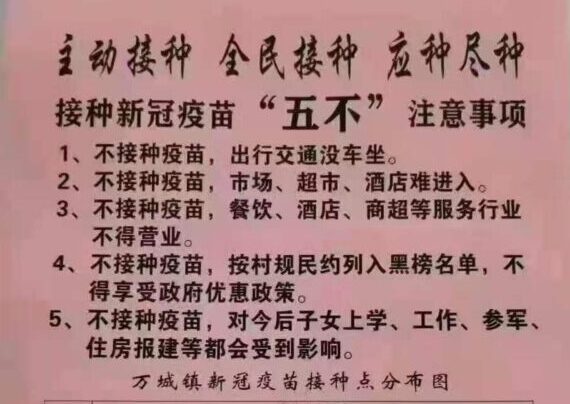Archive for Language and the law
April 21, 2023 @ 7:25 am· Filed by Victor Mair under Language and politics, Language and sports, Language and the law, Language change
But almost everybody does it. You can barely avoid it. Especially if you're an athlete.
"North Korea sentences 20 young athletes for ‘speaking like South Koreans’"
Skaters and skiers were caught on video using banned words while playing a game during training.
Jieun Kim, RFA (4/13/23)
The first two paragraphs of the article:
About 20 aspiring North Korean winter athletes were abruptly sentenced to three to five years of hard labor in prison camps after they were found to have used South Korean vocabulary and slang while playing a word game, sources in the country say.
It’s the latest example of authorities imposing draconian punishments to try to stamp out use of the “puppet language” and “capitalist” influences in daily life – despite the flood of illegal South Korean dramas and songs that many North Koreans secretly watch after obtaining them on thumb drives smuggled into the country.
Read the rest of this entry »
Permalink
April 2, 2023 @ 8:31 am· Filed by Victor Mair under Language and advertising, Language and the law, Transcription
Around 60% of the people living in the San Gabriel area are Asians, and the largest proportion among them are Chinese. To attract the business of the local population, attorney Scott Warmuth decided to put up Chinese billboards in Monterey Park about a decade ago. How it happened is described in this article:
"Column: Racial politics, attorney advertising and cultural communication in San Gabriel Valley",
Frank Shyong, Los Angeles Times (4/1//23)
Although the author, who grew up south of Nashville, Tennessee and who writes about diversity and diaspora, is Chinese, he doesn't say much about the linguistics of Warmuth's name choice, and some of what he says is misleading
Read the rest of this entry »
Permalink
April 1, 2023 @ 5:45 am· Filed by Victor Mair under Gender, Headlinese, Language and gender, Language and the law, Misnegation, Negation
From François-Michel Lang, "I had to read the article to be sure I understood what exactly had happened!"
The Kentucky measure bans access to gender-transition care for young people, and West Virginia’s governor signed a similar bill on Wednesday. Passage of bans also appears imminent in Idaho and Missouri.
By Campbell Robertson and Ernesto Londoño, NYT (March 29, 2023)
Here follow the first five out of seventeen paragraphs in the article:
Read the rest of this entry »
Permalink
February 5, 2023 @ 3:32 pm· Filed by Victor Mair under Etymology, Language and literature, Language and the law
Marvelous post in Pinyin News by Mark Swofford:
Pinyin, US trademark law, and myths about Chinese characters
芝麻 vs. ZHIMA
Posted on Sunday, February 5, 2023
The entire post, and the legal ruling that it reports, are of such importance in clarifying the interrelationships among language, transcription, and translation, especially for those who have an interest in the combination of legalistic and linguistic reasoning, that I will quote the better portion of it, starting from the beginning:
The Mandarin word for “sesame” is zhīma (written “芝麻” in Chinese characters). That’s all the Mandarin anyone will need to know for this post. But if any of you non-Mandarin speakers are curious, an approximate pronunciation would be the je in jerk + ma (with the a as in father).
OK, let’s get into it now.
Read the rest of this entry »
Permalink
June 21, 2022 @ 4:47 am· Filed by Victor Mair under Etymology, Language and culture, Language and food, Language and sports, Language and the law
In the previous post ("Oil: a partial paradigm" [6/19/22)]), we have been discussing the origins and ramifications of the derivation of the word "oil" from the ancient Greek word for olive. The last comment (before I wrote this post), by Coby, states: "Spanish also has the word óleo, which can mean either oil paint or the oil used in church rituals." Reading Coby's reference to óleo immediately sparked fond childhood memories of the Mair family ritual of mixing margarine.
We were a large and not well off family, so we seldom could afford real butter. Consequently, we used oleomargarine to spread on our bread rather than butter. We referred to it as "oleo" instead of "margarine", since the latter seemed too fancy-fussy in our household, and "oleomargarine" would have taken too much time to pronounce and would have been considered archly pedantic among us rural Ohio folk.
Read the rest of this entry »
Permalink
June 1, 2022 @ 4:02 pm· Filed by Mark Liberman under Language and the law
In the aftermath of Uvalde and other recent mass shootings, there's been renewed discussion of the 2nd amendment. So I'm listing relevant past LLOG posts, culminating with Neal Goldfarb's series of 16 in 2018-19.
Read the rest of this entry »
Permalink
May 22, 2022 @ 3:28 pm· Filed by Victor Mair under Ambiguity, Language and the law, Linguistics in the comics, Names, Writing systems
"Baby Pikachu? Japan panel weighs accepting unconventional readings of kanji for names"
KYODO, STAFF REPORT
The Japan Times (May 19, 2022)
What’s in a name? In Japanese, that’s complicated. [VHM: You can say that again! One of the hardest tasks in my graduate training as a Sinologist was learning how to pronounce Japanese proper nouns correctly. This is one of the reasons I wrote the dictionary described in this post.]
An advisory body to the justice minister has compiled a draft proposal on whether and how to accept — and record on the family register — unconventional kanji readings of names for newborns and naturalized citizens. In one cited example of so-called kirakira (sparkly) names, it would be acceptable for the kanji characters 光宙 read as pikachū, which could be a hit for fans of the Pokemon universe.
The proposal is part of the ministry’s push for digitalization of the family register, an effort that would be better facilitated by adding hiragana and katakana readings to kanji names.
Read the rest of this entry »
Permalink
May 5, 2022 @ 7:18 am· Filed by Victor Mair under Language and the law, Lexicon and lexicography
"Newly coined word 'rini' demeans children: rights watchdog", by Park Han-na, The Korea Herald (May 4, 2022)
Popular internet slang words derived from the Korean word “eorini,” which means children, may promote negative stereotypes and discrimination against children, the country’s human rights watchdog said Tuesday.
The National Human Rights Commission of Korea urged related government bodies to find ways for the public to refrain from using the newly coined words that compare a beginner in a certain field to a child, saying it can demean children.
“Eorini” is a formal way of referring to children, according to the National Institute of Korean Language dictionary.
Read the rest of this entry »
Permalink
May 4, 2022 @ 6:55 am· Filed by Victor Mair under Classification, Language and computers, Language and psychology, Language and the law, Translation
To make sense of the story that follows, one must understand that the Korean word "agassi 아가씨" used to refer to a young lady from the upper class, but now in North Korea means “slave of feudal society” and has a very negative connotation there.
"Hidden meaning of Korean term 'agassi' leads to murder", by Choi Jae-hee, The Korea Herald (5/3/22)
Because the linguistic psychology that lies behind the tragic crime recounted in this article is intricate and subtle, it is necessary to recount it at some length:
An error in a mobile translation application recently prompted a 35-year-old Chinese man in Jeongeup, North Jeolla Province, to murder a Korean resident.
Read the rest of this entry »
Permalink
February 13, 2022 @ 5:02 pm· Filed by Victor Mair under Language and the law, Slang
The term “gweilo” is widely used in Hong Kong, with the word even adopted for a local beer brand:

Photo: Dickson Lee (SCMP [2/11/22])
Read the rest of this entry »
Permalink
August 2, 2021 @ 12:45 pm· Filed by Victor Mair under Borrowing, Language and medicine, Language and the law, Pronunciation
Yesterday I went to Philadelphia's famed Mütter Museum at the College of Physicians. I hadn't been there for about 35 years, so it was nice to reacquaint myself with some favored old exhibits (human beings with long horns growing out of their forehead, fetuses at all stages of formation and deformation, bodies with extra heads and limbs, gigantic tumors and colons, etc.), though a few of the most famous items had disappeared (e.g., shrunken heads, apparently because they had been "unethically procured").
One of the most striking exhibits — for me, since most people probably would not pay much, if any attention to it — was the one about bezoars. They are nondescript objects that look like stony balls. Even in section, they are not very exciting to look at, because they are basically a hard, indigestible mass of material such as hair, plant fibers, or seeds that form in the stomach or intestines of animals, especially ruminants, sometimes also humans.
Read the rest of this entry »
Permalink
July 28, 2021 @ 10:52 am· Filed by Victor Mair under Accents, Language and the law, Pronunciation, Topolects
The focus of this post is the nature and modus operandi of the piànzi 騙子 ("swindler; scammer").
According to this article in Chinese, scammers do not speak good Mandarin because having an "accent" enables them to carry out target screening. Such an argument may seem like a bit of a stretch, but let's see how this supposedly works out through the eyes of two Mandarin speaking PRC citizens who have been the intended victims of the schemes of such piànzi 騙子, who pose as representing banks and other financial institutions, public security bureaus, and so forth.
I
The article suggests that there are three reasons why phone scammers speak in strong topolect accents rather than standard Mandarin:1. Accent serves as a "mechanism of filtration", because those who are not sensitive enough to non-Mandarin accents and who can't recognize what is or is not Mandarin are more prone to fraud. 2. The scammers are simply not capable of speaking standard Mandarin given the current situation of Mandarin popularization in China. The scammers are more likely to be unschooled, and they usually share the same accent. 3. It is because of the high illiteracy rate in China that many people can't tell frauds from reliable phone calls made by authentic institutions.
Read the rest of this entry »
Permalink
April 6, 2021 @ 9:46 pm· Filed by Victor Mair under Language and medicine, Language and politics, Language and the law

A notice issued in Wancheng, a town in Hainan Province on March 31 warning people of consequences if they refuse to take vaccines. (Screenshot via Weibo)
Read the rest of this entry »
Permalink

